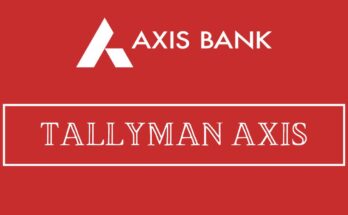You’re probably wondering just how you can pay off your student loans quickly and easily. Well, if you’re like most people, you might be thinking about repayment options like income-based repayment, which makes payments more manageable based on your income and length of time in school.
But before you decide on a repayment plan, it’s important to understand the consequences of not following through with them. And that’s where this article comes in! We’ll tell you everything you need to know about student loan repayments so that you can make the right choices for yourself.
Before we get into the nitty-gritty, it’s important to understand that there are a few things you need to keep in mind when it comes to student loan repayments. First, you’ll need to make sure that you’re aware of your total outstanding debt and monthly payments. This will help you determine which repayment plan is best for you.
Second, be sure to keep track of your progress. Student loan lenders will require regular updates on your repayment progress in order to ensure that you’re making on-time payments. If you don’t provide these updates, they may approve your loan for a lower repayment plan or even stop repaying your loans altogether.
Finally, be prepared to make extra payments if necessary. Many student loan borrowers find that they have to make extra monthly payments in order to catch up on missed payments or pay off their entire debt within 10 or 15 years.
Now that we’ve covered the basics, let’s take a look at some of the most popular repayment plans available:
Income-Based Repayment Plans:
If you want to repay your student loan benefit are based on your income, income-based repayment plans are the best option for you. These plans work by calculating your monthly
The Types of Loans You Owed
If you are an employer, there are a few things you need to know about student loan repayment. In this article, we will discuss the different types of loans you may have taken on and some solutions to follow for repayment.
The first type of loan is the federal student loan. This loan is made by the government and is the most common type of student loan. The federal student loan has a fixed interest rate that changes periodically, but the interest rate on this loan can be as high as 6.8%. You must pay back your federal student loan with a fixed monthly payment based on your income. If you decide to withdraw from school, you may have to pay back your federal student loan even if you do not finish your degree or program.
The second type of loan is the private student loan. This type of loan is also made by the government, but it is privately issued and has a variable interest rate that changes periodically. The interest rate on a private student loan can be lower than the interest rate on a federal student loan, but it can also be higher. You must repay your private student loans with a fixed monthly payment based on your income, just like you would with a federal student loan
The Repayment Process
The employer student loan repayment process is essential for both the employer and the employee. The repayment process must be followed in order to avoid any penalties or delays in receiving a return on the investment.
The first step in the repayment process is to gather all the necessary information. This includes the loan amount, loan servicer, and repayment plan. The next step is to create a repayment plan that fits both the employee’s and the employer’s needs. The final step is to follow the repayment plan and submit periodic payments. If there are any difficulties with repaying the loan, both parties must work together to resolve the issue.
The following are steps to follow when repaying an employee’s student loans:
1. Determine if the employee is currently enrolled in a qualifying educational program.
2. If the employee is not enrolled in a qualifying educational program, then contact the lender to ask for a forbearance agreement.
3. If the employee is enrolled in a qualifying educational program, then contact the lender to request an advance on their payments.
4. Make all required payments on time according to the repayment schedule set forth by the lender.
5. If there are any changes in employment that would impact repayment obligations, contact the lender as soon as possible to update them on your current situation.
6. Keep all loan documentation and correspondence related to this repayment process for future reference.
Tips for Making the Repayment Process Easier

If you are an individual who is responsible for making repayments on your student loan, there are a few things you can do to make the process easier. Here are a few tips:to get student loan benefit
1. Make a plan. know exactly how much you will need to repay each month and when those payments will need to be made. This will help you keep track of your progress and stay on track.
2. Get organized. Having all of your repayment information in one place will make it easier to track your progress and make sure that you are making the correct payments.
3. Consider a consolidation loan. A consolidation loan is a type of loan that combines several student loans into one loan, which can make repayment more manageable. There are many different consolidation loans available, so be sure to look into what is best for you.
4. Talk to a lender about options. If you cannot afford to repay your student loans on your own, consider talking to a lender about options such as deferment or forbearance. Lenders may be able to work with you to come up with a repayment plan that works better for you.
What If You Can’t Afford To Repay Your Loan?
If you can’t afford to repay your student loan, there are a few solutions you may have to consider.
The first step is to figure out if you qualify for any financial assistance. There are a number of government and private programs that can help you pay off your loan more quickly or in full.
Another option is to ask your employer to help cover the cost of your repayment. Many companies offer repayment assistance programs that will reduce or even eliminate your monthly payments.
Finally, if all else fails, you may need to file for bankruptcy. This option is not recommended unless all other options have been exhausted, but it can provide a short-term solution if you cannot afford to repay your loan.
Talk to a Loan Consultant
If you are struggling to repay your student loan, it is important to speak with a professional. A loan consultant can help you develop a repayment plan that works for your individual situation and budget.
Conclusion
It’s no secret that student loan debt can be a huge burden for many people. And while there are many solutions out there, it can be tricky to figure out which one is right for you. In this article, we’ll take a look at some of the most common student loan repayment solutions and explain what each one entails. We’ll also discuss some things to keep in mind if you’re considering one of these options, so that you know exactly what to expect.
Finally, we’ll provide a few resources to help you find more information on the topic if you’d like to learn more. So whether your goal is to have your loans paid off quickly or manage them into manageable levels over time, this article will give you the tools necessary to achieve success. Thanks for reading!




